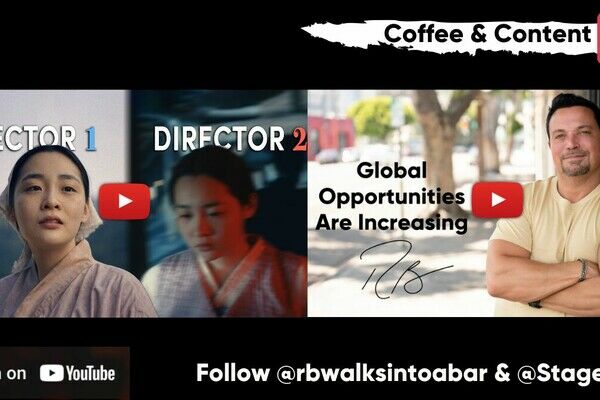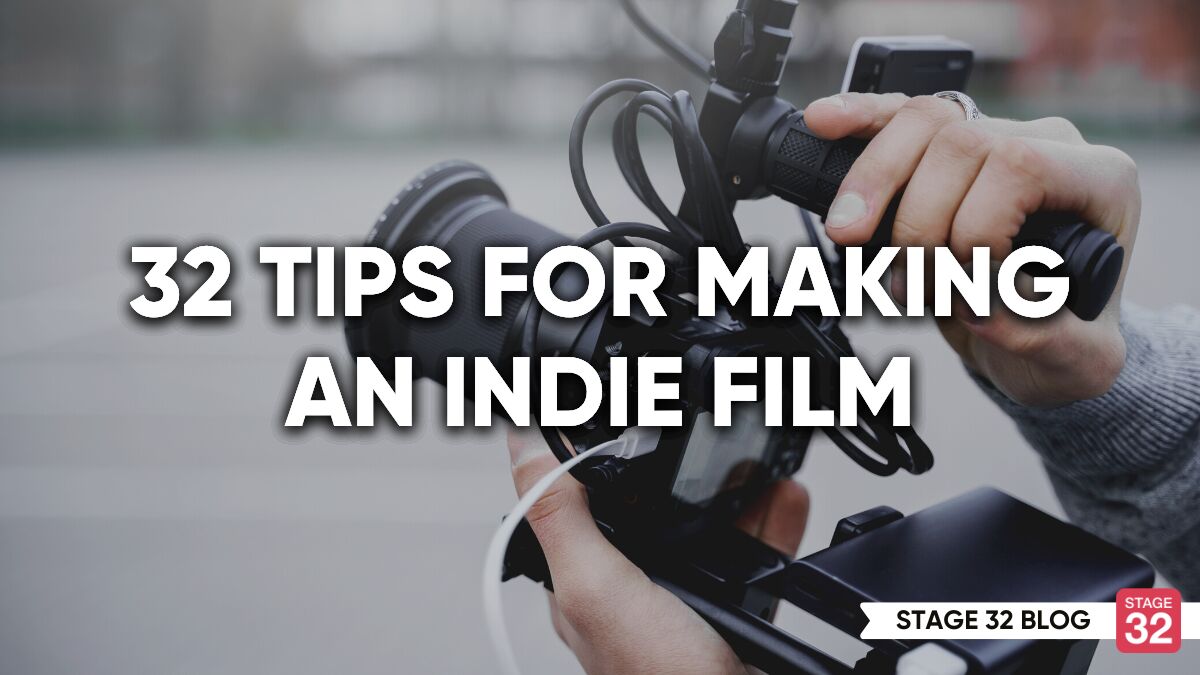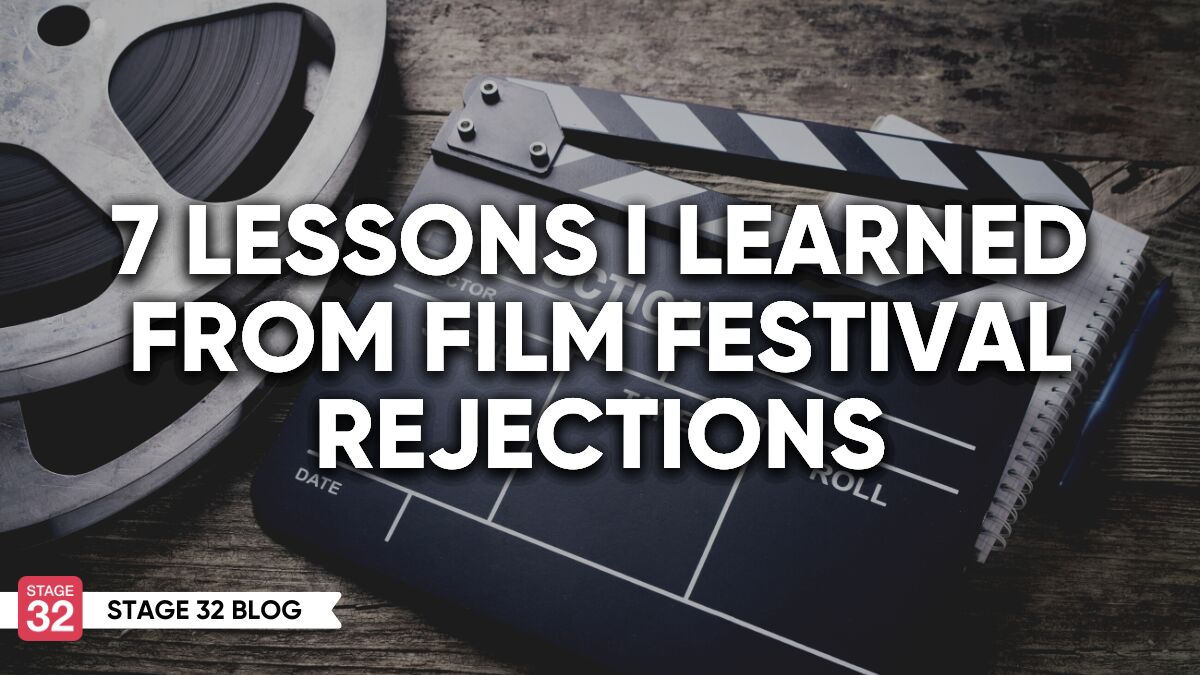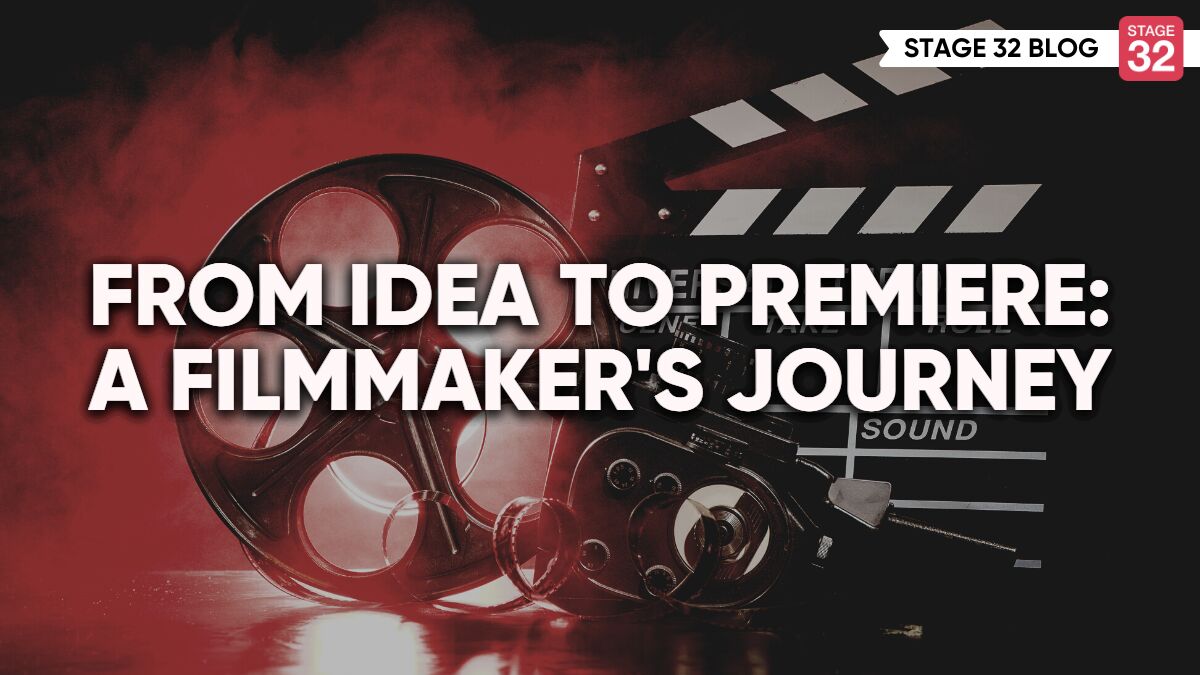From Idea To Premiere: A Filmmaker's Journey
In 2003, I walked past a former monastery in a Dutch city several times a week, and there were the following words above the portal: 'I was sick and you visited me.' (Bible - free quoted from Matthew). I imagined that a house could be 'sick' and be visited by people who had just died and would find out there that they were dead. Whereby the house could 'cleanse' itself. I knew I had a story.
Three years later, I published this suspense story in a collection with other horror authors in the Netherlands. Little did I know then that 20 years later, this story would premiere in theater as a short film. This is how the film profession begins for me. With the story.
In this blog, I will take you through my process as an independent filmmaker, from literally zero to the premiere, and I hope to be able to give some tips to people who are in the same process or starting out.
Professionalization
I am not a technical director (my training in directing allows me to consult with the Director of Photography, but I do not take over his job). But certainly, I am very image-oriented. I know what I want to see and how. After a short course in TV directing, I decided a few years later to take a year's course in fiction film directing in Amsterdam. With the modules scriptwriting, cinematography, production, and post-production, each student can finish a short film. For me, the short film became a little bigger and more comprehensive than I had originally thought. Around me, I saw several film students who were giving themselves a hard time. They were critical and perfectionists but quickly got bogged down, which simply resulted in: no film. To keep on track, I continued to professionalize, but also by looking at others, including fellow creatives at Stage32.

Stage32
The adage is: if you can explain something well, you really understand it. I give lectures to Communication students in the subjects of (screen) writing and film. Through discussions at Stage 32, I have made lasting contacts - even at a distance. Twice already, I made an online (visual) connection between the Netherlands and California to do a Q&A with students, one with a Director of Photography and another with a screenwriter from LA. A wonderful learning situation and an opportunity available to anyone who sees the value in networking on the site.
I hope to teach the students to keep an open mind. When I was in directing school myself, saw around me several film students who were giving themselves a hard time. They were critical and perfectionist but quickly got bogged down, so there just wasn't a film. This brings us to the next tip.
When you start a film project, finish it
This sounds obvious, but it is not. About 15 years ago, as a journalist, I wrote an article in a national magazine about the game industry. One of the game developers said: ‘The most important thing in this entertainment world is finish every project. Start with a small project, but finish it. You learn from that.’ For film, I think the same applies. Give yourself the confidence that you can bring your product to completion. If you sense it's getting too big or too unrealistic, scale down. Try to achieve a final result with the resources and skills you have now. Then, it will be easier to tackle a bigger project next time. So, finish it! Rather smaller and finished than big and unfinished.
After journalism, I spent years writing as a speechwriter and ghostwriter in politics and police. As a storyteller, I also connected the police profession to storytelling. People start to understand a certain complex world once it becomes a story.

The story is crucial
Russell Crowe once told in an interview that they started shooting Gladiator (2000, Ridley Scott) when there were only 20 pages of script. We stopped shooting at one point," he explained, "because writers had to get on with it first." Whether this is true, I don't know, but it must have been an important exception. Or perhaps also a confirmation that if you don't have a story, you can't possibly move on. A film without a good story is like a tent without poles, and this one inevitably collapses. Furthermore, for me, the story proved indispensable in this context:
- With such a low budget, you need to find a good crew that is inspired by the story. Like you, they have to believe in a joint final product. This suspense story with room for depth appealed to them.
- The actors want believable characters in an unusual situation. The gothic love story aspect ‘spoke’ to them.
- Consultation with an editor is easier when the story is very clear.
- And, of course, when recruiting a crew, a clear logline and synopsis is indispensable.
How did I raise money? I did crowdfunding, but this wasn’t enough. I had to add almost the same amount during production. Next time I would be more astute about unexpected costs.
Think about where you can (or must) spend your money on
Fixed values in film (besides crew and cast) are equipment (camera, light, and sound) and location. In retrospect, I invested quite heavily in cameras and accessories. When it turned out that I had less luck with the location than hoped, that became a challenge. A scene in a student house I shot in a real student house in the center of my hometown Zwolle. A bedroom scene and a street scene at my home. The "old house" scene, I would first shoot in a gigantic monastery, where we could go for a whole weekend for little money. A developer took it over from the manager and canceled all appointments for film and photography. A new location, a former monastery, turned out to be the perfect opportunity. A beautiful building, which the developer allowed me to enter for free. Until I found out that the building had been stripped inside for renovation! I made a third attempt at a noble family that was willing to donate its historic estate for a fee. Or so I thought. The family got into an argument (!) over the commitment three days in advance, so I didn't dare take that risk either. In the end, I rented out a large church (for, unfortunately, quite a bit of money) for an entire weekend. It helped the film, but it was critical to my budget.

What would I do differently myself next time?
- I did some of the production myself. I would look longer for production help. Location managers underestimate how unwieldy a production becomes when you have 30 crew members and 5 cast members. "Can't you come two days later?" they asked. They don't consider the fact that you can't easily get almost 40 people arranged again on a given date.
- I would take more control on the set over the image, framing, and camera direction. I relinquished relatively much to the Director of Photography. Certain scenes did not become what I exactly envisioned (although the audience does not see that).
- I learned about professions whose value I underestimated. The script supervisor (who also neatly prepared my production book) helped me tremendously with good camera reports. Remember the importance of the script supervisor!
- With a low budget, you think economical in shooting days. For 15 minutes of film, I had a maximum of 4 shooting days. Every shooting day taught me more. Each next day I was able to direct my actors even better. Important: put actors at ease but also be resolute. On the first day, I finished a scene about which I was not satisfied with the acting. I had to cut it out.
Finally, the post-production. A beautiful phase in which I worked with a reliable editor to achieve a result that fit the budget and preparation of this film. Music I composed, arranged, and produced myself. A beautiful coming together of creative expressions.
That is my final advice: make use of expertise, but if you can do it yourself, do it!
Let's hear your thoughts in the comments below!
Got an idea for a post? Or have you collaborated with Stage 32 members to create a project? We'd love to hear about it. Email Emily at blog@stage32.com, and let's get your post published!
Please help support your fellow Stage 32ers by sharing this on social. Check out the social media buttons at the top to share on Instagram @stage32 Twitter @stage32 Facebook @stage32 and LinkedIn @stage-32
| 32 Tips For Making An Indie Film |
| 7 Lessons I Learned From Film Festival Rejections |
Search Stage 32 Blog
There are now 3708 blog posts for you to enjoy. Search them all by tags below.
Acting, Advice, Cinematography, Coffee & Content, Composing, Contests, Distribution, Featured, Filmmaking, Financing, Inspirational, Networking, Producing, Screenwriting, Success Stories, Tips, Trending,Relevant Tags
Recommended Articles

What I Learned While Making My Epic Sci-Fi Feature

Red Carpet Roll-Out: January 2025's New Executives & Education at Stage 32!

Huge Announcement: Executive Script Read + Consultations Now Eligible for "Double Recommends" and Meeting Requests!

Coffee & Content: When They Double Down, You Triple Down!

3 Ways Acting Has Helped Me Become A Better Writer

Do Not Lose The Fire In Your Voice In 2025

Understanding Your Character's Goals & Motivations

Coffee & Content: Global Opportunities Are Increasing!

The 3 Step Process To Unlock Your Creativity






